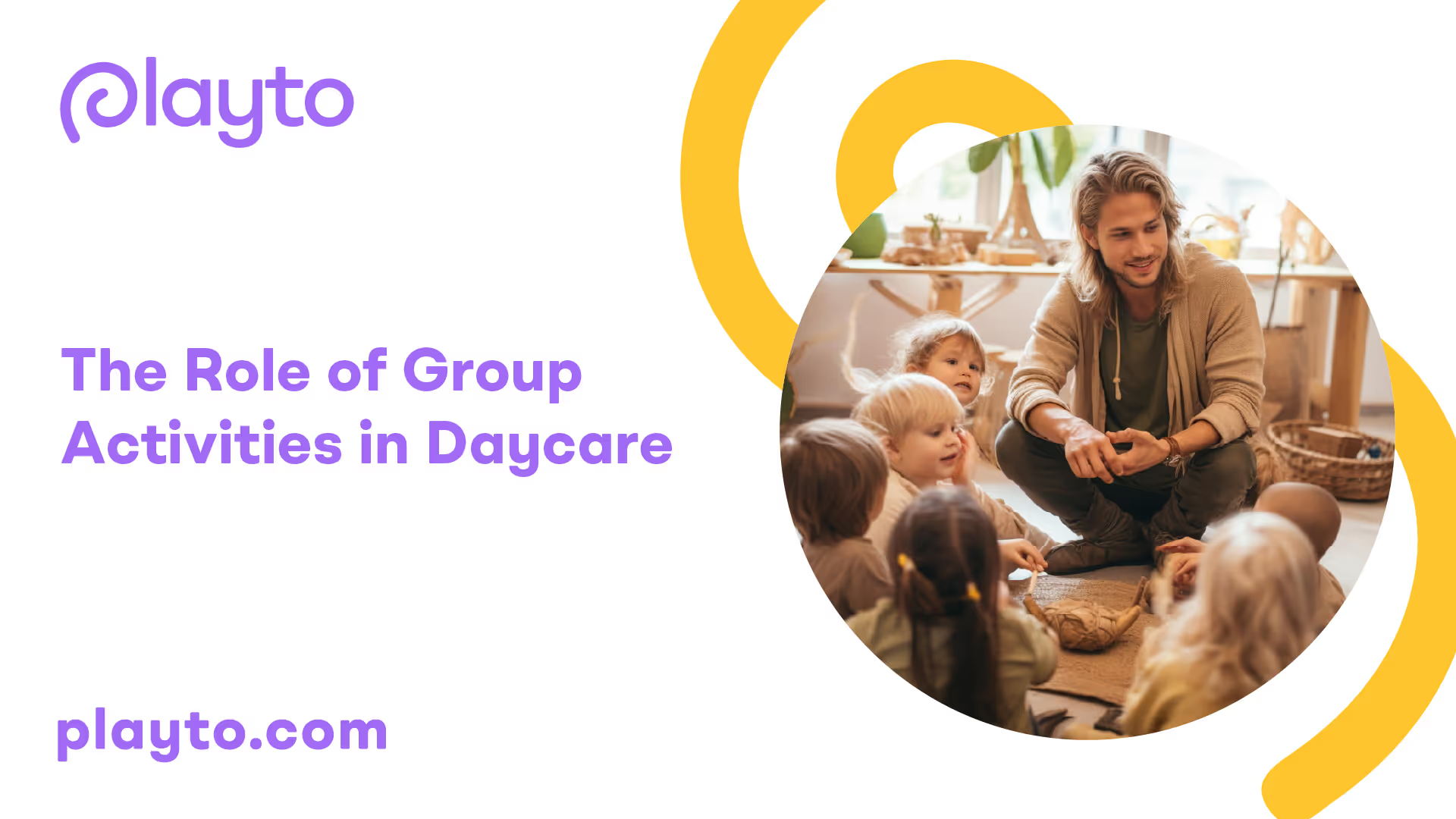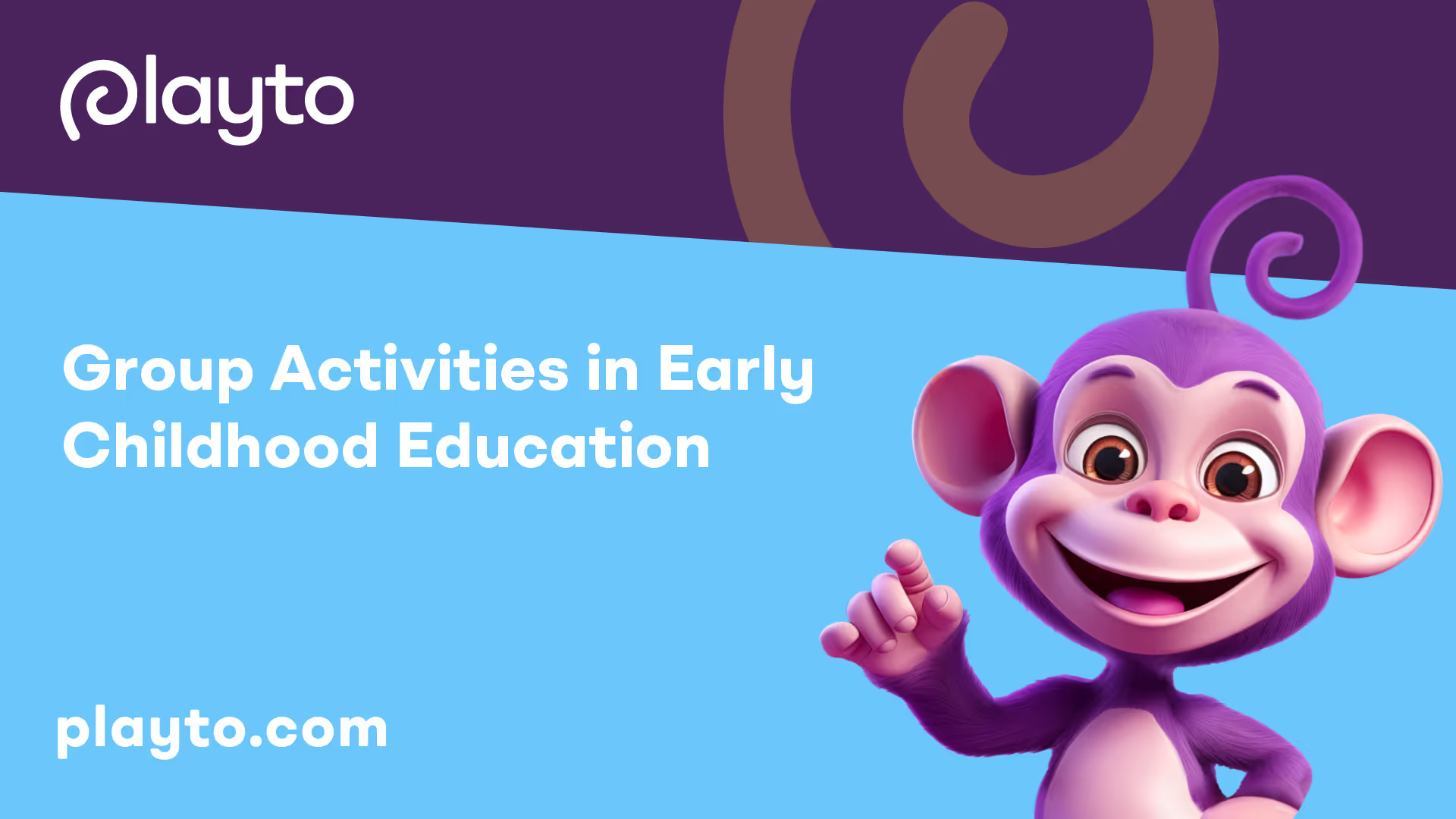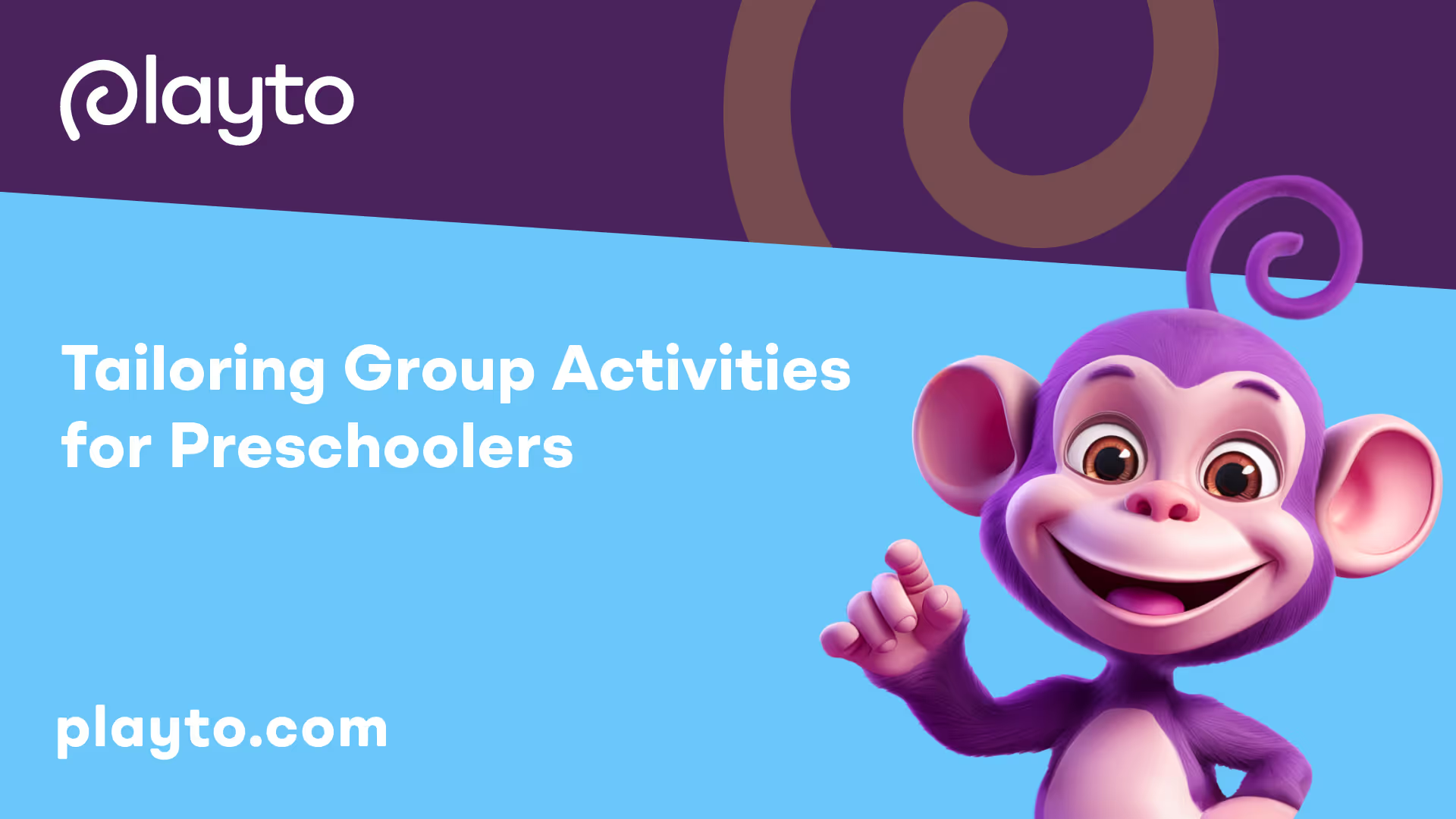
Importance of Group Activities in Daycare
In daycare settings, group activities play a crucial role in supporting the overall development of children. These activities provide numerous benefits for social development, as well as cognitive and motor skill development.
Social Development Benefits
Engaging in group activities allows children to learn from one another and act as role models for each other. By working together as a team, they develop important social skills and learn the value of cooperation and collaboration. Group activities encourage children to engage in inventive exercises that foster teamwork and problem-solving [1].
Through group activities, children have the opportunity to practice essential social skills that will benefit them throughout their lives. They learn to share resources, understand concepts like winning and losing, and develop a sense of fairness and sportsmanship. These activities provide a supportive environment for children to learn crucial social cues and build healthy relationships.
Cognitive and Motor Skill Development
Group activities in daycare also contribute to the cognitive and motor skill development of children. These activities provide opportunities for children to practice and refine their cognitive abilities while engaging in fun and interactive experiences.
Participating in group activities stimulates critical thinking and problem-solving skills. Children are encouraged to think creatively, make decisions, and find solutions within a group setting. This fosters their cognitive development and enhances their ability to analyze and solve problems effectively.
Furthermore, group activities promote the development of motor skills as children engage in physical movements and coordination within the group. Whether it's playing group games or participating in organized movements, children have the chance to enhance their motor skills and physical abilities.
By incorporating group activities into daycare environments, caregivers and educators create an enriching experience that supports the social, cognitive, and motor skill development of children. These activities provide a platform for children to learn, grow, and thrive in a collaborative and interactive setting. For more information on the role of different types of play in daycare, check out our articles on the role of play in daycare and the role of structured activities in daycare.

Group Activities in Early Childhood Education
In early childhood education, group activities play a vital role in fostering a supportive and enriching environment for children. These activities not only promote social development but also contribute to the cognitive and emotional growth of young learners. Let's explore the benefits of small group instruction and how it helps in building healthy relationships among children.
Small Group Instruction Benefits
Engaging children in small group activities has numerous benefits. According to HiMama, small group activities in preschool are great for building healthy relationships in the classroom, regulating emotions, and developing empathy. Children learn through observing how their peers solve problems or interact with each other. This exposure to different perspectives helps children develop interpersonal skills and a sense of community. By actively participating in these activities, children learn to collaborate, communicate, and respect the ideas and opinions of their peers.
Small group activities also provide an opportunity for individualized attention and instruction. Educators can tailor their teaching strategies to meet the specific needs of each child, ensuring that they receive the support required to enhance their learning experience. This personalized approach can have a positive impact on the rate at which a child learns a skill, according to HiMama. It fosters a sense of accomplishment and boosts confidence, empowering children to take ownership of their learning journey.
Building Healthy Relationships
Participating in group activities provides children with opportunities to interact and engage with their peers, helping them learn how to communicate effectively, cooperate, and collaborate with others. These experiences assist in developing essential social skills such as sharing, taking turns, and resolving conflicts, ultimately fostering friendships, empathy, and teamwork [2].
By working together in small groups, children learn the value of listening to others, expressing their thoughts and ideas, and appreciating diverse perspectives. These skills lay a foundation for healthy relationships and effective communication as they grow. Group activities also create a sense of belonging and support, as children learn to rely on each other and celebrate collective achievements.
Educators play a crucial role in facilitating and guiding group activities. They create a safe and inclusive environment that encourages children to actively participate, contribute their unique strengths, and develop a sense of belonging. Through intentional planning and observation, educators can ensure that group activities align with the developmental needs and interests of the children, promoting engagement and positive interactions.
In conclusion, group activities in early childhood education provide a myriad of benefits. They not only facilitate learning and skill development but also foster social-emotional growth and the formation of healthy relationships. By embracing small group instruction and promoting collaboration, educators create a nurturing environment where children can thrive academically, socially, and emotionally.

Tailoring Group Activities for Preschoolers
In a daycare setting, group activities play a crucial role in enhancing the development and learning of preschoolers. To ensure maximum engagement and growth, it is important to tailor these activities to meet the specific needs of the children. Here are two key aspects to consider when adapting group activities for preschoolers: collaboration and individualized attention.
Adapting Activities for Collaboration
Collaboration is an essential skill that children can develop through group activities. By encouraging preschoolers to work together towards a common goal, they learn the value of teamwork, cooperation, and problem-solving. Adapting activities to promote collaboration can be done in various ways:
- Assigning small group tasks: Dividing children into small groups allows them to actively participate and engage with their peers. This fosters an environment where they can share ideas, listen to different perspectives, and work together towards a common objective. For example, in language and literacy activities, children can build names or words with manipulatives shaped as letters, promoting collaboration and creativity.
- Offering open-ended activities: Providing open-ended activities encourages children to collaborate and find innovative solutions together. Activities that involve building, creating, or problem-solving can be adapted to promote collaboration. For instance, constructing a structure using building blocks or working on a group art project allows children to learn from each other, share materials, and communicate effectively.
Individualized Attention and Impact
While group activities are designed to promote collaboration, it is equally important to ensure that each child receives individualized attention within the group setting. This attention allows educators to observe and understand the unique needs, interests, and developmental progress of each child. Here's how individualized attention can be incorporated:
- Differentiated learning: Tailoring activities to meet the varying skill levels and interests of children within the group allows educators to provide individualized attention. Providing materials or instructions at different levels of complexity ensures that each child is appropriately challenged and supported in their learning journey.
- Close observation and support: Working with small groups enables educators to closely observe and assess each child's progress. This proximity allows for immediate feedback and guidance, helping children refine their skills and providing targeted support where needed. This individualized attention positively impacts the rate at which a child learns a skill, leading to enhanced development [3].
By adapting group activities to foster collaboration and incorporating individualized attention, preschoolers can benefit from a well-rounded and enriching daycare experience. These tailored group activities promote social interaction, cognitive development, and emotional growth, laying a strong foundation for lifelong learning. For more information on the role of group activities in daycare, you can explore our articles on the role of dance in daycare education, the role of play in daycare, and the role of outdoor play in daycare.
Emotional Development Through Group Activities
Group activities in daycare play a vital role in the emotional development of children. These activities provide opportunities for children to manage their emotions, express themselves, and foster self-awareness and resilience. By participating in group activities, children learn important skills that contribute to their emotional well-being and growth.
Managing Emotions and Self-Expression
Engaging in group activities helps children learn to manage their emotions effectively. Through collaborative play and interaction with peers, children develop strategies to regulate their emotions, handle disappointment, and celebrate successes. They learn to navigate conflicts, negotiate, and compromise, creating a supportive space for emotional exploration and growth.
Group activities also encourage self-expression. Whether it's through art, music, or storytelling, children have the opportunity to express their thoughts, feelings, and ideas. This fosters creativity and enhances their ability to communicate and connect with others.
Fostering Self-Awareness and Resilience
Participating in group activities helps children develop self-awareness and resilience. By engaging in collaborative tasks and facing challenges together, children gain a deeper understanding of their strengths, weaknesses, and unique abilities. They learn to take on new roles, adapt to different situations, and build confidence in their capabilities.
Through group activities, children also learn to navigate various social dynamics and develop resilience in the face of setbacks. They learn to handle disagreements, respect different perspectives, and work towards common goals. These experiences contribute to the development of a positive self-image and a sense of belonging within the group.
To further explore the role of group activities in daycare, you can also read our articles on the role of dance in daycare education, the role of play in daycare, and the role of outdoor play in daycare. Group activities provide a nurturing environment for children to develop essential social and emotional skills that will benefit them throughout their lives.
Cognitive Development in Group Settings
Engaging children in group activities plays a significant role in their cognitive development. Group settings provide opportunities for stimulating critical thinking, problem-solving, and enhancing creativity and communication skills.
Stimulating Critical Thinking and Problem-Solving
Participating in group activities encourages children to think critically and solve problems collaboratively. Through tasks that require brainstorming, planning, and execution, children develop their analytical skills and learn to evaluate different perspectives [2]. Group activities provide a platform for children to face challenges together, fostering resilience and adaptability.
By engaging in group discussions, debates, and presentations, children learn to express themselves clearly and actively listen to others. These activities enhance their communication skills, enabling them to articulate thoughts and ideas effectively. The diverse perspectives and ideas shared within a group stimulate critical thinking and expand children's problem-solving abilities.
Enhancing Creativity and Communication Skills
Group activities provide an environment where children can express their creativity and enhance their communication skills. Collaborative tasks such as arts and crafts projects, group storytelling, and group performances nurture children's imagination and creativity. By working together, sharing ideas, and combining individual strengths, children develop a sense of teamwork and learn to appreciate different perspectives [3].
Participating in group activities helps children improve their communication skills by teaching them to express themselves clearly, actively listen to others, and engage in effective communication techniques. Group discussions, debates, and presentations provide opportunities for children to practice articulating their thoughts and ideas, fostering their ability to communicate confidently and effectively.
By engaging in group activities, children develop essential cognitive skills such as critical thinking, problem-solving, creativity, and effective communication. These skills are crucial for their academic success and personal growth. Encouraging group participation creates an environment that fosters active learning, leadership abilities, and the exploration of diverse perspectives, setting a strong foundation for children's cognitive development.
Communication Skills Through Group Engagement
Engaging in group activities plays a vital role in developing children's communication skills. By participating in group discussions, debates, and presentations, children learn to articulate their thoughts, express themselves clearly, and actively listen to others. These skills are essential for effective communication and are crucial for personal and professional success [2].
Articulating Thoughts and Active Listening
Group activities provide children with opportunities to practice articulating their thoughts and ideas. Whether it's engaging in a group discussion or sharing their perspective during a collaborative project, children learn to express themselves clearly. Through these interactions, they develop their vocabulary, sentence structure, and overall communication skills.
Active listening is another crucial aspect of effective communication. Group activities require children to attentively listen to their peers, understand their perspectives, and respond appropriately. This skill helps children build empathy, understand different viewpoints, and develop better relationships with their peers.
Developing Effective Communication Techniques
Group activities offer a platform for children to develop effective communication techniques. Collaborative tasks like brainstorming, planning, and executing projects stimulate critical thinking, problem-solving, and decision-making skills. Children learn to work together, negotiate, and compromise, fostering their ability to communicate effectively within a team.
Additionally, group activities encourage children to ask questions, seek clarification, and offer constructive feedback. These interactions enhance their communication skills, enabling them to express their thoughts confidently and engage in meaningful conversations.
By engaging in group activities, children not only improve their communication skills but also develop other essential skills, such as critical thinking, problem-solving, and decision-making. These skills are invaluable in both academic and social settings, and they lay the foundation for future success.
To learn more about the importance of group activities in daycare, you can explore our articles on the role of dance in daycare education, the role of play in daycare, the role of outdoor play in daycare, the role of free play in daycare, the role of structured activities in daycare, the role of individual attention in daycare, and the role of play-based learning in daycare.
References
- [1]: https://mindnasium.com
- [2]: https://amcca.ca
- [3]: https://www.himama.com
- [4]: https://mybrightwheel.com
.avif)